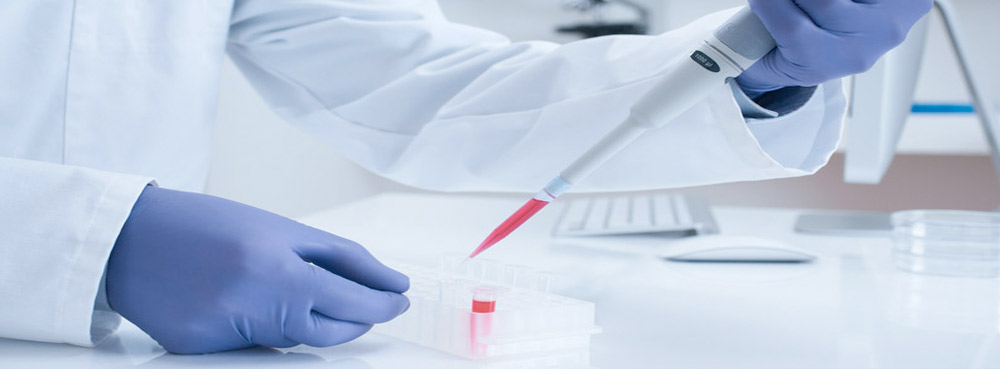Regenerative medical technologies

Manufacturing technology for Cell Therapy and Regenerative Medicine
Living medicines are set to revolutionize clinical therapies and treatment. Cell (or stem cell) therapy, as a new form of treatment, is a rapidly growing industry that has already exceeded the value of $1bn per year.The next phase of growth toward a multibillion-dollar global industry will depend on innovative bio-manufacturing to meet growing market demands, and provide products at affordable costs. Both autologous and allogeneic treatment require ex vivo cell expansion after cell isolation from tissues collected from patients and/or donors, quality control, preservation of live cell products and transportation of cell products safely to the bedside. At Oxford MEStar, we are currently working on engineering solutions in the following areas associated with cell therapy and regenerative medicine manufacturing.
If you are interested in our services or wish to explore collaborative opportunities, please contact us.
Bioreactor system for cell/stem cell expansion
Stem cell expansion is one of the core steps in the manufacturing of cell therapy products. The cell/stem cell expansion team at Oxford MEStar is developing a closed automated bioreactor system based on cell culture techniques developed by the company’s cell culture experts. The bioreactor will be capable of producing large number of cells required for clinically effective doses of cell therapies; the cells will also be produced at a high density, reducing the need for any downstream concentration of the cultured cell product. Utilising Oxford MEStar’s expertise in developing fully automated systems; the bioreactor will operate with minimum human intervention, and it will be capable of monitoring and adjusting important cell culture parameters throughout the culture period. A closed, single-use tubing set will minimise the risk of contamination of the cell culture, whilst optimising the number of disposable and reusable parts to balance capital and operational costs. The bioreactor will be scalable; the goal of large scale production has been considered from the beginning, resulting in incorporation of elements that will efficiently use all of the resources available.
If you are interested in our services or wish to explore collaborative opportunities, please contact us.
Automated natural tissue decellularisation system
A speciality of Oxford MEStar is our provision of bespoke R&D decellularisation systems, which are used for the automated scale up and production of natural tissue decellularised scaffolds. The system is designed to standardise and automatically conduct procedures required by regulation, including temperature control, buffer change, and waste disposal. The systems consist of decellularisation bioreactor systems: where natural tissue decellularisation processes are carried out in either stainless steel bioreactors, or in single-use-units with supports from pumping systems, mechanical movements, sensors, and monitoring systems. All parameters can be programmably controlled under desired conditions.
If you are interested in our services or wish to explore collaborative opportunities, please contact us.
Stem cell technology
Mesenchymal stem cells(MSCs)are multipotent adult stem cells that are present in multiple tissues, including umbilical cord, bone marrow and fat tissue. MSCs can self-renew by dividing and can differentiate into multiple tissues including bone, cartilage, muscle and fat cells, and connective tissue. Numerous studies have shown that MSCs have tremendous therapeutic potential, with over 400 clinical trials currently registered. However, storage and transport of viable and active MSCs from labs to clinical sites is a major bottleneck for such therapies. There is a clear need for improvement in this regard for routine clinical use of MSCs.
MSCs reside in a hypoxic niche in vivo, thus there have been a limited number of studies into their behavior under hypoxia. To date, little is known about their basic cell metabolic pathways or about substrate requirements and metabolite production at different stages of expansion and differentiation. There is virtually no information on membrane transport of nutrient substrates nor about their substrate sensitivity.
Through collaboration with University of Oxford, we aim to investigate pathways of energy metabolism, glycolytic or oxidative, during different stages of MSC expansion and differentiation. At these stages, we will determine rates of substrate utilisation and metabolite and reactive oxygen species production in relation to substrate and metabolite extracellular concentrations. We will measure the influence of the substrate/metabolite environment on transporter expression and activity. We will investigate the influence of different substrates (such as oxygen, glucose, glutamine, pyruvate) on these processes. We will also investigate expansion on soft substrates, reported to maintain quiescence.
The study will provide a new understanding of metabolic pathways of MSCs and the conditions for promoting expansion and differentiation on the one hand, or quiescence on the other. The information obtained will allow us to tailor medium composition as required at different stages of in vitro manipulation, cell storage and transportation.
Oxford MEStar welcomes partnership and collaboration opportunities. If you are interested in collaboration with us, or require our services, please contact us.
